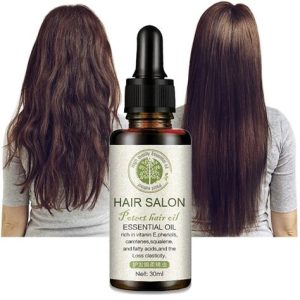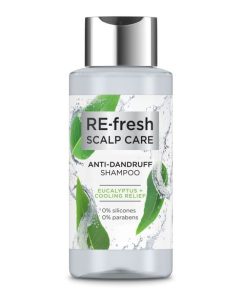Dandruff can be a frustrating and embarrassing condition. It can cause white flakes to appear on your scalp and hair, making you feel self-conscious. While there are many dandruff shampoos available, some people wonder if conditioner can help.
This article explores the relationship between conditioner and dandruff. We will discuss the different types of dandruff and how conditioner might affect them.
Understanding Dandruff
Dandruff has two main causes: seborrheic dermatitis and a dry scalp.
Seborrheic Dermatitis:
This is a chronic skin condition that causes redness, itching, and flaking on the scalp. It can also affect the eyebrows, sides of the nose, and behind the ears.
Dry Scalp:
This condition occurs when your scalp doesn’t produce enough oil. This can lead to flaking and itching.
How Conditioner Works
Conditioner is designed to moisturize and nourish your hair. It coats the hair shaft, making it smoother and easier to manage. Conditioner can also help to:
- Reduce frizz
- Add shine
- Improve manageability

Can Conditioner Help with Dandruff?
The answer depends on the type of dandruff you have.
-
Seborrheic Dermatitis: Conditioner may not be helpful for seborrheic dermatitis. In fact, some conditioners can actually worsen the condition by clogging pores and irritating the scalp.
-
Dry Scalp: For a dry scalp, conditioner can be helpful. It can add moisture to the scalp and help to reduce flaking. Look for conditioners that are labeled as “hydrating” or “moisturizing.” These conditioners will contain ingredients that help to attract and retain moisture in the hair and scalp.
Choosing the Right Conditioner
If you have dandruff, it’s important to choose a conditioner that is gentle and won’t irritate your scalp. Here are some tips:
-
Look for Fragrance-Free: Fragrances can irritate the scalp, so choose a conditioner that is fragrance-free.
-
Avoid Harsh Ingredients: Avoid conditioners that contain harsh chemicals, such as sulfates or alcohols. These ingredients can strip the scalp of its natural oils and worsen dandruff.
-
Consider a Scalp Treatment: Some conditioners are specifically formulated for dandruff control. These conditioners may contain ingredients such as salicylic acid, coal tar, or tea tree oil.

Other Tips for Managing Dandruff
In addition to using the right conditioner, there are other things you can do to manage dandruff:
-
Wash your hair regularly: Aim to wash your hair 2-3 times per week. This will help to remove excess oil and dead skin cells from the scalp.
-
Use a gentle shampoo: Look for a shampoo that is formulated for dandruff control. These shampoos will contain ingredients that help to remove flakes and prevent them from coming back.
-
Manage stress: Stress can worsen dandruff symptoms. Find healthy ways to manage stress, such as exercise, yoga, or meditation.
-
Diet: Some people find that their dandruff improves with dietary changes. Eliminating processed foods and sugary drinks may help.
See a Doctor if Dandruff Persists
If you have tried these tips and your dandruff is still severe or persistent, see a doctor or dermatologist. They can diagnose the cause of your dandruff and recommend the best course of treatment.
While conditioner may not be a cure for dandruff, it can be helpful for people with a dry scalp. By choosing the right conditioner and following other dandruff management tips, you can keep your scalp healthy and flake-free.
Let’s explore some additional tips for managing dandruff: Does conditioner help with dandruff?
-
Diet: Some people find that their dandruff improves with dietary changes. This can vary by person, but some find success by limiting processed foods, sugary drinks, and unhealthy fats.
-
Stress Management: Stress can worsen dandruff symptoms. Finding healthy ways to manage stress, such as exercise, relaxation techniques, or spending time in nature, can be beneficial.
-
Scalp Massage: Gently massaging your scalp during shampooing can help increase blood circulation and loosen flakes. You can use your fingertips or a soft-bristled brush.
When to See a Doctor or Dermatologist
If you’ve tried these tips and your dandruff is still severe or persistent, it’s important to see a doctor or dermatologist. They can diagnose the underlying cause of your dandruff and recommend the best course of treatment. This might include a prescription shampoo or medication.
Dandruff can be a frustrating condition, but there are steps you can take to manage it. By understanding the different types of dandruff, choosing the right hair care products, and following these tips, you can keep your scalp healthy and flake-free.

-
Healthy Habits: Maintaining a healthy lifestyle can benefit your overall well-being, including your scalp health. This means getting enough sleep, eating a balanced diet, and managing stress.
-
Scalp Massage: Gently massaging your scalp during shampooing can help increase blood circulation and loosen flakes. You can use your fingertips or a soft-bristled brush.
-
Experiment with Hair Care Routine: If you suspect your conditioner is worsening dandruff, try switching to a different one. Look for fragrance-free and gentle formulas. You might also experiment with washing your hair less frequently.
While conditioner is primarily designed to smoothen and detangle hair, certain types can indeed provide benefits for managing dandruff.
Here are some key points to consider:
- Moisturizing Properties: One of the main causes of dandruff is a dry scalp. Conditioners formulated with hydrating ingredients like aloe vera, glycerin, or natural oils can help moisturize the scalp, reducing dryness and the subsequent flaking associated with dandruff.
- Soothing Ingredients: Look for conditioners that contain anti-inflammatory ingredients such as chamomile, tea tree oil, or oat extract. These can help calm an itchy, irritated scalp often seen in dandruff cases.
- pH Balance: A balanced scalp pH is crucial for maintaining a healthy scalp ecosystem. Some conditioners are designed to restore the natural pH of the scalp, which can be disrupted by harsh shampoos or environmental factors, contributing to dandruff.
-
Gentle Formula: Choose conditioners that are free from potential irritants like sulfates, parabens, and artificial fragrances, as these can exacerbate dandruff in sensitive individuals.
- Regular Usage: For best results, incorporate a dandruff-fighting conditioner into your regular hair care routine, using it after shampooing. Leave it on for a few minutes to allow the active ingredients to work effectively before rinsing thoroughly.


Leave a Reply